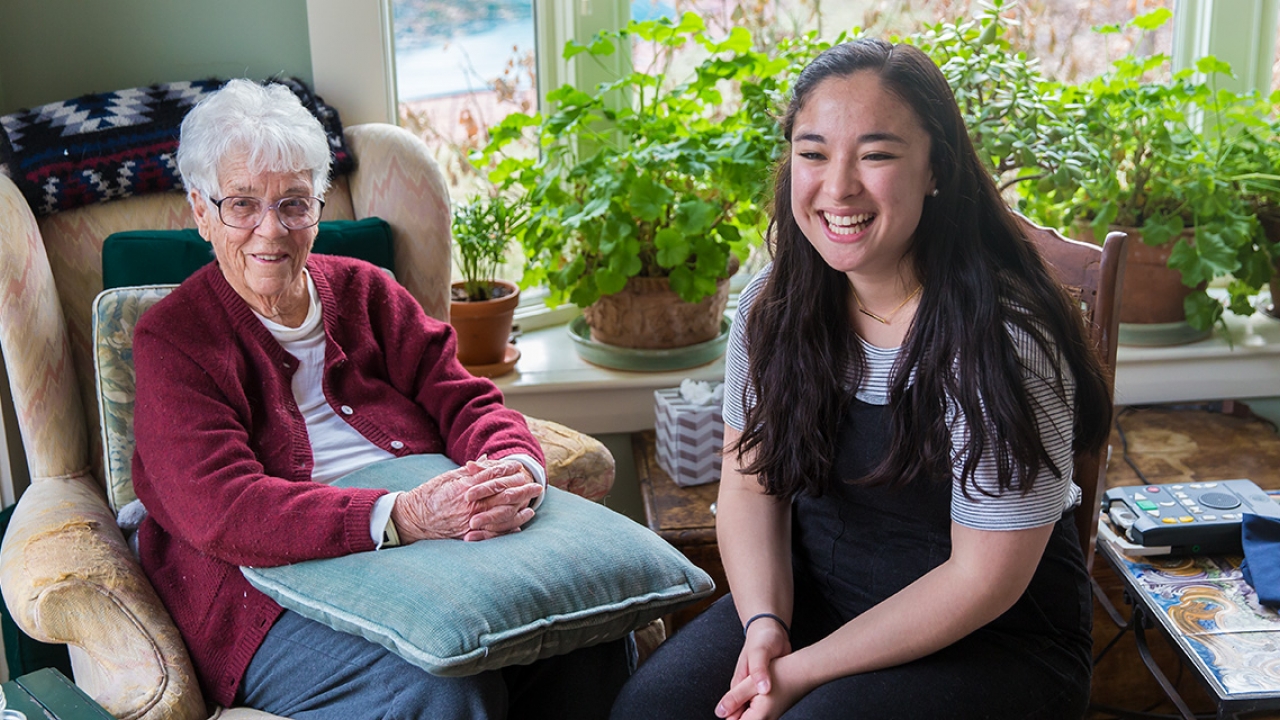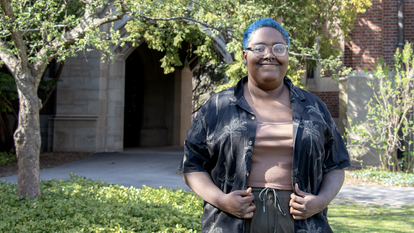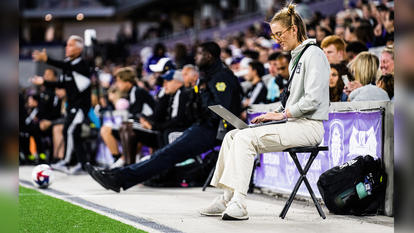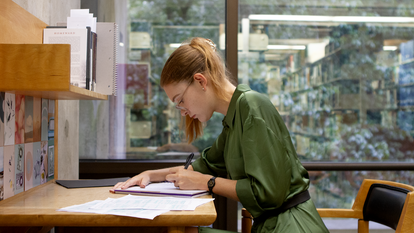How Peace and Justice Studies Came to Wellesley

Kitty Gladstone ’50 became active in social justice issues soon after moving to the town of Wellesley in 1953. More than 30 years later, she would be instrumental in launching the Peace and Justice Studies Program at Wellesley.
Gladstone, a history major, stayed focused on world issues, particularly the arms race and the threat of nuclear war. In the early 1980s, she became an anti-nuclear arms activist and helped lead a local citizens group that supported a nuclear weapons freeze campaign.
In 1983, motivated by personal interest, Gladstone began researching Nobel Peace Prize winners and their approaches to conflict resolution. In doing so, she learned for the first time about 1946 prizewinner Emily Greene Balch, who taught economics and sociology at Wellesley from 1896 until 1918.
An outspoken pacifist, Balch campaigned against the United States’ entry into World War I. She was a cofounder of the Women’s International League for Peace and Freedom (WILPF), together with her friend Jane Addams (the first American woman to win the Nobel Peace Prize, in 1931—Balch was the second).
Gladstone found Balch amazing, because of her character but also because of her stand on war and peace, injustice, and women’s leadership. “She was my hero, because she stood for all the things I stood for,” Gladstone says. She was also excited about their shared Wellesley connection.
Inspired by Balch’s example, Gladstone helped galvanize alumnae support for what became the Peace Studies Program at Wellesley, which was launched in 1984 during the administration of President Nannerl Overholser Keohane ’61.
The program’s focus shifted to conflict and justice after its first few years, says Gladstone, and in 1995 it was renamed the Peace and Justice Studies Program. The interdisciplinary program has over 130 alumnae and 28 current majors.
At her 50th reunion in 2000, Gladstone persuaded her class to fund the Peace and Justice Studies Emily Greene Balch internship. Today, it offers a $4,000 stipend to students who take on research projects that involve peace, justice, and social change.
Now 89, Gladstone maintains a close connection to the program she helped establish. When she started to lose her eyesight due to macular degeneration nine years ago, she began to hire students from the program to read to her and help sort a lifetime’s worth of personal papers.
Margaret Calmer ’18 visits Gladstone’s home as a paid reader, and the pair have become very close. Calmer is also helping Gladstone catalogue volumes of family photos, personal documents, and letters to her mother and father that date back to her days as a Wellesley student. Gladstone’s files even contain infant photos and a lock of her hair.
On one recent visit, Calmer brought out a plate with homemade ginger cookies. “I help Kitty archive her materials, but we also talk about world affairs, my life, her life, anything,” says Calmer, a political science and peace and justice studies major.
“There’s no generational divide, because we like each other and share a bond—we both believe peace and justice are ultimate goals if you don’t want to have a world where war and violence dominate,” says Calmer.
In honor of Women's History Month, Wellesley's #FutureisFemaleFriday celebrates one woman each week who is making change, achieving goals and moving us all forward.



